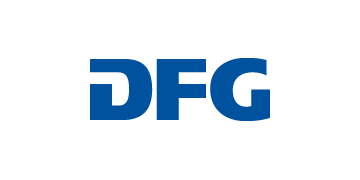| Theme | Tool- and Mold-Making |
|---|---|
| Project title | Warm forging of steel with modified carbon-based coating systems (DLC) |
| Project duration | 01.07.2009 – 31.08.2011 |
| Video |
Publications about the project
Warm forging is an attractive alternative to hot forging due to the preferable properties of the forged work pieces. However, the lower forging temperature results in higher yield stresses of the material to be formed. Therefore, the forging die within warm forging is rather loaded mechanically than thermally compared to hot forging. To protect forging dies against wear appropriate die materials and coatings are necessary. Based on their high strength and outstanding friction properties hydrogenated amorphous carbon films could be a suitable wear protection coating for warm forging.
Different types of hydrogenated amorphous carbon films were deposit on forging dies and their wear behaviour was characterised following warm forging trials. The results prove the applicability of the coatings to protect warm forging dies against wear. A hydrogenated amorphous carbon film doped with 40 at-% of chromium demonstrated its efficacy as a wear protection coating up to billet temperatures of 950 °C. The resulting surface temperature of the forging die then is about 510 °C.
warm forging, wear, diamond-like carbon (DLC)
Reducing die wear is an effective way to decrease costs within bulk forming processes. Therefore, specific tool materials and heat treatments as well as special coatings are used to prolong the lifetime of the tools. Diamond-like carbon (DLC) coatings show high hardness and superior frictional behavior. However, these coatings seem to be inappropriate for hot forming due to degradation processes at elevated temperatures. But for warm forming, due to the lower temperature input into the cavity DLC might be an appropriate coating. Friction influences the shear stresses on the cavity surface and is therefore an important factor for reducing die wear. Hence, the frictional behavior of DLC coatings within warm forming will be analyzed within this paper by using the ring compression test. An amorphous hydrogenated carbon coating and six metallic doped amorphous hydrogenated carbon coatings (Cr, V and W each in two variants) are compared to CrN and no coating. Firstly, nomograms are graphed by the use of Finite-Element-Analysis. Thereafter two test series are carried out varying forming temperature and lubrication. The results show that DLC coatings with and without metallic doping are able to reduce friction in warm forming. Within the investigations an amorphous hydrogenated carbon doped with 15 % chromium shows the lowest friction factor and is able to reduce the friction factor compared to no coating by up to 64 % within warm forming.
diamond-like carbon (DLC), friction, warm forming, bulk forming, ring compression test
Due to high mechanical loads the die cavity shows high wear in warm forging processes. Within this paper the ability of a hydrogenated amorphous carbon doped by 40 % chromium as wear protective coating for bulk forming processes will be analysed. Therefore billets with temperatures between 650 and 1200 °C have been forged on this layer. Thereafter the layers are analysed and the wear behaviour is evaluated.
coating, forging, forming
The higher mechanical loads in warm forming processes lead to increased mechanical wear of the dies. Using hard Diamond-like Carbon (DLC)-coatings can reduce this main disadvantage of warm forging. By an adequate doping of DLC with elements the temperature stability of these coating can be increased. Especially in areas with high relative movement the analysed coatings show advantageous behaviour compared to not coated dies.
diamond-like carbon (DLC), warm forming, bulk forming, wear
Diamond-like carbon coatings (DLC coatings) are anti-adhesive and extremely hard (up to 3500 HV) therefore they are outstandingly suitable as a wear-resistant coating. This ability to reduce tool wear in the warm forging is investigated by simulation and experimentally in IPH.
dlc, coating, warm forging
Warm forged parts are distinguished by good surface properties and high dimensional accuracy. In comparison to hot forging the maindisadvantage is the high wear of the forging dies because of the higher mechanical load. Diamond-Like Carbon (DLC) coatings are anti-adhesive and extremely hard (up to 3500 HV) and are thus suitable as wear protection coatings. The suitability of these kind of coating is examined by simulation and experiments at the IPH – Institut für Integrierte Produktion Hannover gemeinnützige GmbH. For this purpose, a modular test rig was developed, which enables the detection of relevant process parameters, e.g. as the die temperature. The project aims at a reduction of die wear and a wa to demonstrate the wear process, depending on the process parameters.
DLC, coating, warm forging
Quality requirments are demanding wear protection for forging dies to ensure a long life time in combination with dimensional accuracy. This paper describes the investigation of yet unknown coatings in the forging industry like laser based hard coatings and diamond like carbon coatings.
aluminium forging, wear, wear coatings





